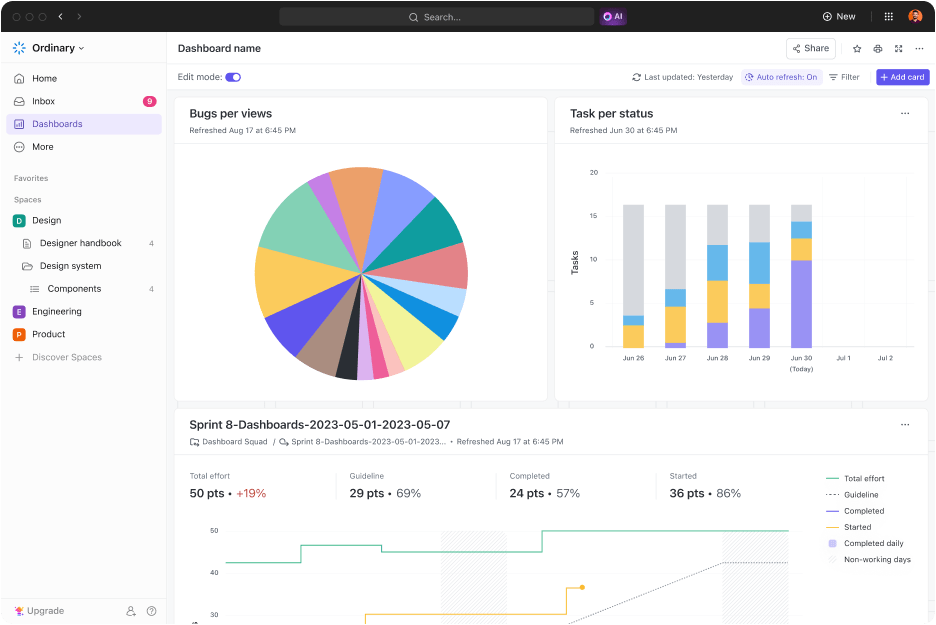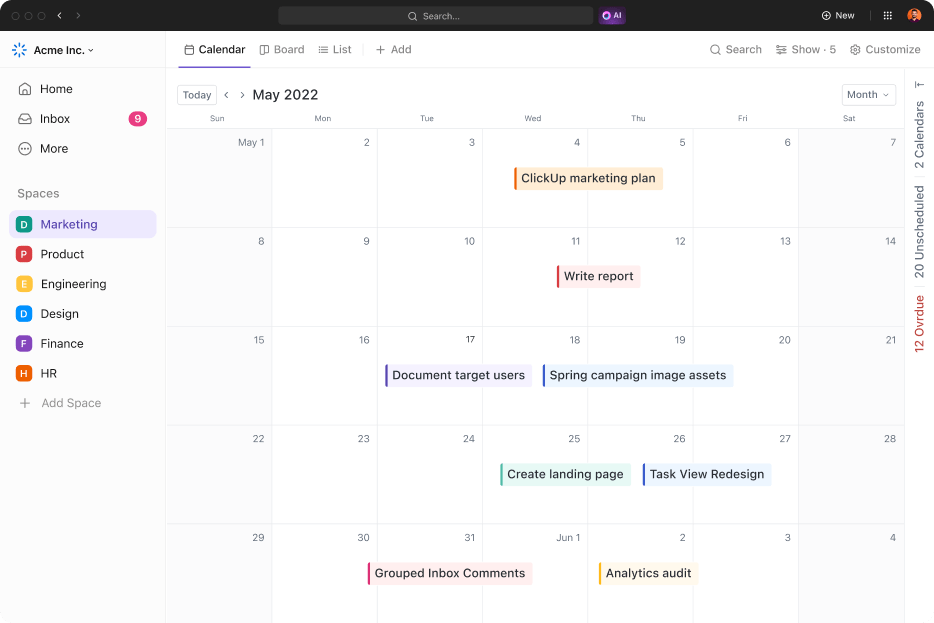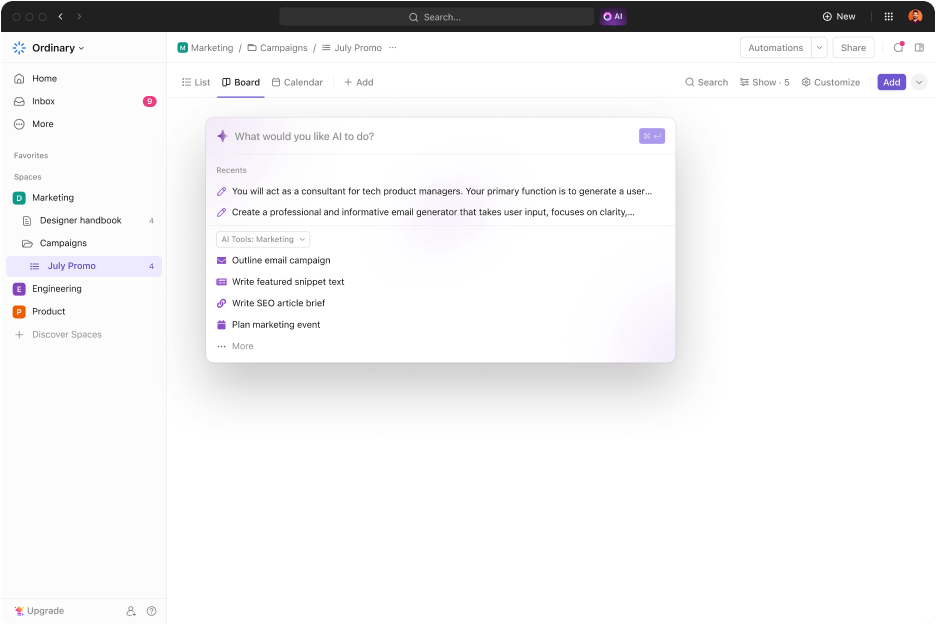How to Get into Software Sales

Sorry, there were no results found for “”
Sorry, there were no results found for “”
Sorry, there were no results found for “”
A career in sales is often viewed as fast-paced and high-powered. It involves maintaining a robust prospects pipeline, frequently jumping from calls to meetings, and delivering sales pitches that capture attention. But it’s more than just the hustle.
Ultimately, as a sales rep, you strive to build genuine connections with customers and address their needs. Take care of that, and the sales targets and incentives will take care of themselves.
Pursuing a career in software sales places you on the frontline of helping companies use software to solve problems. You’re not just selling a product here; as a part of the sales team, you’re offering technological solutions that can fundamentally change how a business operates.
So, how do you get into software sales? What sales skills do you need to develop? What does a typical day in the life of a sales manager look like in the software world? Is it possible to enter software sales without any experience?
This blog post will answer all your questions on how to get into software sales. Let’s get started.
Software sales refers to the process of selling software products or services to businesses or individuals.
Software sales can include on-premise software, cloud-based solutions (SaaS), and various other sales apps often customized to meet specific needs, such as Enterprise Resource Planning (ERP), Customer Relationship Management (CRM), and personal productivity software.
A software sales career is perfect for anyone who enjoys combining their passion for technology with people skills.
As a software sales professional, you need to understand customer requirements, demonstrate product value, and ensure buyer satisfaction and retention by offering support.
If you were to step into this profession, your role would typically include the following tasks and responsibilities:
Research shows that the average base salary of a software sales rep in the US is $100,993, and the average additional cash compensation is $63,310.
In addition, the Bureau of Labor Statistics projects a 22% growth in the software development industry by 2030. For those wondering why and how to get into software sales, the remuneration proves that there are significant income opportunities for sales reps and software sales managers.
Whether you’re a student exploring graduate programs or someone looking to transition into software sales from a different career, here’s how you can prepare for a profession in the software sales industry.
A degree in business, marketing, or a related field can provide foundational knowledge, but it’s not the only path. For those coming from a non-business background, supplement your education with an additional area of focus to broaden your skill set.
For example, if you want a more traditional sales training program, take a sales course at a local university or community college. Today, many educational institutes offer business classes in sales development, giving you the chance to learn from experienced professionals.
Alternatively, take up a relevant online course to develop your technical skills or opt for an internship under an account manager selling software tools or in a related sales domain.
Students and people who want to change their careers should focus on blending hard and soft skills.
For example, learn how to use a CRM solution, as it’s integral to tracking leads and sales KPIs, setting follow-up reminders, and analyzing sales data.
Popular tools like Salesforce, HubSpot, ClickUp, or Zoho CRM offer free resources and certifications that can help you improve this hard skill.
Since a sales role requires effective communication, sharpen your ability to articulate product USPs and answer queries tactfully. Taking courses in public speaking, negotiation, and persuasive communication can enhance this soft skill.
Additionally, focus on active listening. You must be able to understand the customer’s needs and tailor your pitch accordingly to address them. ‘Listen first, talk later’ should be your mantra as a software sales representative.
While you don’t need to be a coder, having a basic understanding of software development, cloud computing, data analytics, etc., can be highly advantageous. You can build this knowledge by taking short courses on e-learning platforms like Coursera, Udemy, or LinkedIn Learning.
Another effective way to gain technical expertise is by learning about the specific software products you’re interested in selling. You can do this by studying product demos, reading whitepapers, attending webinars, and listening to sales podcasts.
If you don’t have any formal experience, take on freelance or contract sales roles to build your portfolio.
For example, you could join a tech startup and provide virtual sales support for six months—while getting your degree. Explore relevant opportunities on sites like Toptal, Upwork, CloudPeeps, and Monster Jobs.
Remember that even short-term projects can help you develop a strong track record and make you comfortable using sales tools for project management, customer relationship management, lead generation and outreach, etc.
Or, look for internships that offer exposure to sales processes, customer interactions, and product knowledge, even if they’re not directly in a sales role. This will help you build practical skills and network as a software sales representative.
Internships can also lead to full-time job offers, giving you a direct path into the field.
If you’re targeting a specific type of software, opt for technical certifications.
For example, the AWS Certified Cloud Practitioner certification is beneficial for learning about cloud-based software, while Google Analytics is ideal for analytics tools.
Dedicate time to learning effective sales methodologies such as SPIN Selling, the Challenger Sales model, or Consultative Selling. They provide a research-backed framework for working and closing complex deals with extended sales processes.
Start by creating or updating your resume.
Emphasize relevant experience, such as your sales achievements and familiarity with software products. Highlight your ability to meet sales targets, manage client relationships, and close deals using sales productivity tools.
If you’ve done internships or freelance software sales jobs, include that. This is especially important if that’s the only experience you have at the moment.
Next, write a compelling cover letter. Explain why you’re a great fit and how your skills will benefit a software company. Tailor this cover letter for each company you apply to.
💡 Pro Tip: Always ensure your LinkedIn profile is up-to-date and optimized for software sales roles. Include a professional photo, a relevant and impactful headline, and a detailed summary of what you bring to the table.
There are various websites where you can find tech sales job listings, including:
Use each platform’s job search feature to filter jobs by title, location, experience level, and more. You can set up job alerts to receive notifications about new opportunities.
Many companies also post job openings directly on their websites before listing them on job boards. You can identify the organizations you’re interested in working for and visit their careers page regularly.
Networking is a powerful tool in advancing your career in software sales.
Participate in industry conferences and seminars. Engage with key players, learn about the latest trends, and build meaningful connections. You can also join panels, ask questions, and volunteer at these events to increase your visibility.
You can search for and join LinkedIn groups and communities dedicated to technology and SaaS, specially curated for software sales professionals. Actively participate in discussions, share valuable content, and interact with group members.
Lastly, leverage your alumni network if you attended college. a trade school, or a specific training program. Many alumni are willing to help fellow graduates, especially if they share a common educational background. Reach out to them, ask for advice, and inquire if they know of any job openings.
Referrals can be far more effective than submitting a job application or a cold LinkedIn message.
Remember, there’s no such thing as a born salesperson. Great sales representatives take preparation seriously and hone their skills over time with practice and experience.
This notion holds even when finding a job.
Once you’ve submitted your application, get ready for interviews.
Familiarize yourself with commonly asked questions, such as “How do you handle objections?” or “Describe a time when you turned a prospect into a customer.” You should be able to discuss your sales approach, how you manage your leads, and how savvy you are with sales automation tools.
In addition, companies expect candidates to have a solid understanding of the products they sell. Therefore, do your research on the software—understand its features, benefits, and how it compares to competitors.
Demonstrating product knowledge during the interview shows that you’re serious about the role and ready to hit the ground running.
After the interview, send the interviewer(s) a thank-you email. In the email, express your appreciation for the opportunity and briefly reiterate your enthusiasm for the role and why you’re a good fit. This simple gesture can leave a positive impression on the hiring team.
If you haven’t heard back after a reasonable period, follow up politely. Reaffirm your interest in the position and inquire about the status of your application. This follow-up can keep you top-of-mind as the hiring process continues.
Although you could manage your learning goals with pen and paper, a spreadsheet, or a Google Doc, that may not suffice in the long run. What you need is a platform that not only tracks your progress but also helps you make a plan to continue learning and filling in skill gaps.
That’s where ClickUp for Sales enters the picture. Its intuitive interface and rich set of features cater to the unique needs of every aspiring sales professional. With its 1000+ templates, it helps you organize tasks, set clear objectives, and automate reminders, streamlining the sales workflow.
For example, you can use the List Template by ClickUp to organize and categorize information.
Get more done in less time with the List Template by ClickUp
With this template, you can:
Another helpful tool is ClickUp’s Kanban template. It helps increase the visibility of each task in your sales journey.
It also enables you to:
Besides these templates, the ClickUp Dashboards feature gives you an at-a-glance overview of your learning goals and milestones. It ensures you stay on course without unnecessary distractions.

You can customize your interface views to suit your preference, whether you favor a List, Kanban Board, or Table for visual clarity.
For example, using ClickUp Calendar View, you can drag and drop tasks for easy scheduling and integrate tasks with your Google Calendar.

In addition, learn how to use AI in sales training.
Suppose you want specific information about where you stand with a particular task or goal. In that case, you can use ClickUp Brain to instantly search and retrieve information from any Dashboard in your Workspace.

It can save you a lot of time and effort, especially if you wish to manage your entire schedule on a single software platform like ClickUp.
Additionally, ClickUp Brain, an AI writing assistant, helps you draft personalized outreach emails within seconds. This feature is especially useful for entry-level sales positions where you need your emails to be crisp and grammatically correct.

You can also lean on ClickUp Brain to draft your resumes professionally and ensure nothing important falls through the cracks.
Another useful feature for sales professionals looking to upskill is the ClickUp Smart Goals Template.
This template enables you to define SMART goals. SMART stands for Specific, Measurable, Achievable, Relevant, and Time-bound.
For example, a SMART goal for a sales professional could be: Complete a Salesforce certification course within three months by breaking it down into weekly milestones tracked through ClickUp.
However, ClickUp’s use is not just limited to steadily building the expertise required for a career in software sales; it’s also one of the leading sales enablement tools in the market.
When starting a new job in software sales, a valuable asset you can bring to your team is the ability to leverage technology effectively.
Imagine how much more efficient you could be if you didn’t have to reinvent the wheel with every email, proposal, or follow-up. As a new software sales manager, using templates ensures your messaging, your lead tracking, and sales schedule is organized, professional, and aligned with your team’s strategy.
The ClickUp Sales Plan Template allows you to set and track meaningful goals, organize information about tyour customer base in one place, and easily access it when needed.
Use this template to:
These sales plan templates enable you to confidently manage a higher volume of work, as they eliminate the need for manually brainstorming sales proposal content.
Sales is about providing immeasurable value to your customers; software sales is no exception.
The answer to your question—how to get into software sales lies in the following best practices:
With the sales strategies and tips we’ve shared in this blog, you’re sure to get a jumpstart in software sales. And, of course, for a dynamic project management and sales tool to be your ally in your learning journey and your career in software sales, you can always count on ClickUp.
Sign up for ClickUp for free and achieve your software sales goals with ease. All the best!
© 2026 ClickUp